Bronze Sculpture by Linda Serrao -- How It's Made
Home | Gallery | Portraits | New Works | Exhibitions | Bio | How It's Made | Contact
The Foundry Process
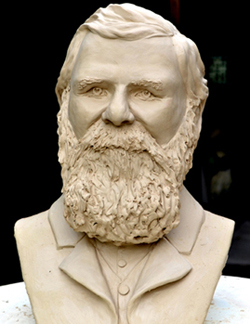
The clay model for the sculpture of DD Palmer.
The first step in making a bronze sculpture is, of course, to sculpt the figure in clay. I use a porcelain type, water base clay because I love the smooth texture and the detail I am able to obtain. This is the finished clay model for the sculpture of DD Palmer, the founder of Chiropractic. This particular sculpture was done entirely from photographs, since he lived from 1845-1913.
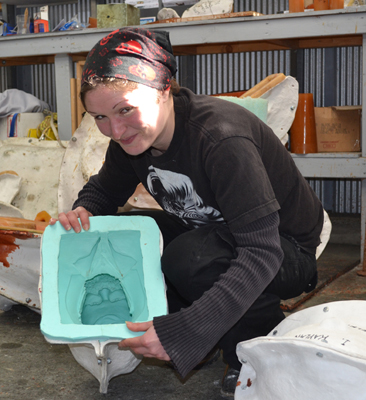
The silicone mold for making the bronze bust.
The mold maker takes great pride in her work! This is the silicone mold made from the DD Palmer bust. Without her skill, the clay could not be translated into bronze. It is not transformed, of course, but must go through an involved series of processes to get to the end stage of metal.
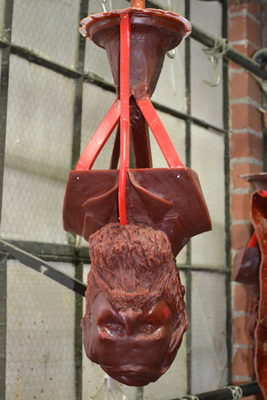
The wax model, ready for its plaster shell.
Melted wax is poured into the silicone mold to form a shell that looks exactly like the original clay sculpture, but hollow. The rods are called "gates" or "sprues" and will form the channels that the molten bronze will follow to form the bronze bust. The cup at the top will become he funnel into which the molten bronze is poured. This wax will be completely covered by a ceramic plaster shell, inside and out.
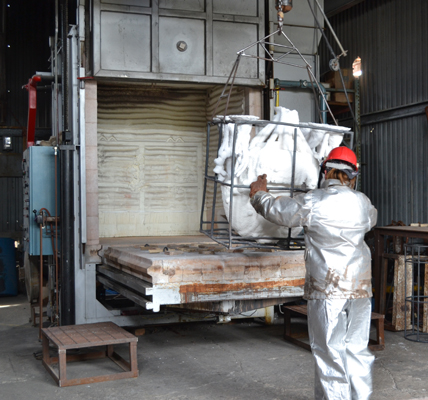
Putting the enrobed waxes into the kiln for burn-out.
The enrobed wax will be put into the kiln and the wax will be burned out. This is the "lost wax" method of bronze casting, developed by the ancient Greeks, and basically unchanged for thousands of years.
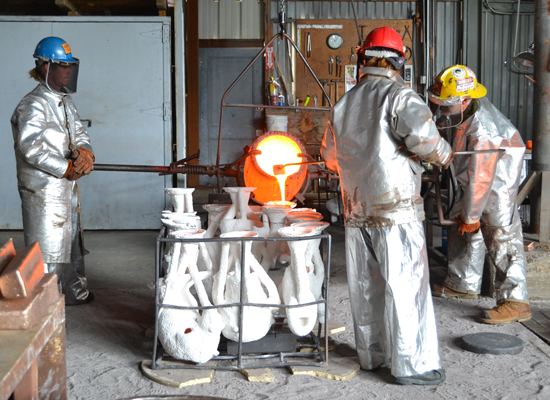
Pouring the bronze into the empty plaster shell.
The empty ceramic shells go to the pour room where molten bronze is poured into the now empty cup at the top of the shell. The bronze flows down the burnt out gates into the hollow space where the wax used to be. They will be left in the bronze room to cool, and then the shells will be broken off. The bronze casting still needs many hours of cleaning and polishing before it is finished. Once this is done, it will reveive its patina, and finally look like a work of art.
The Finished Bronze Sculpture and the clay original
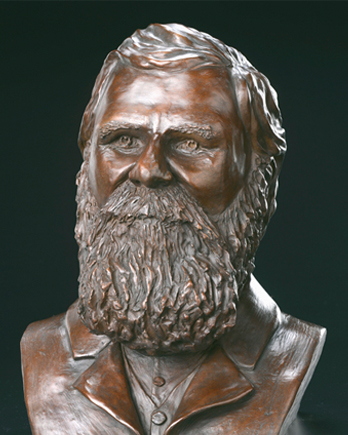
DD Palmer bronze bust
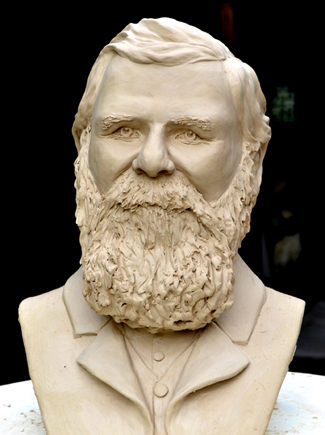
The Clay Model for DD Palmer
Home | Gallery | Portraits | New Works | Exhibitions | Bio | How It's Made | Contact